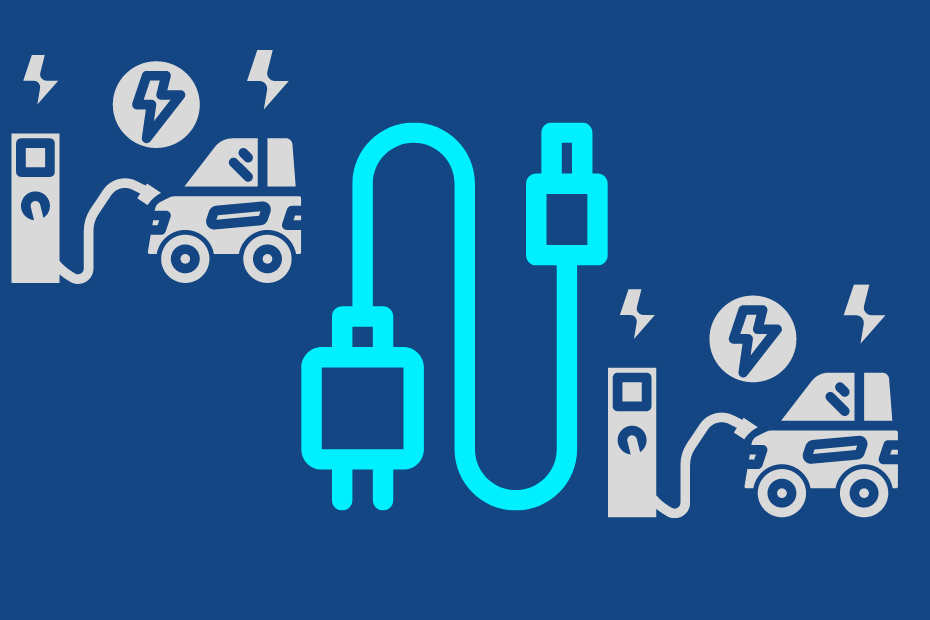Electric Vehicle Tax Credit: Know How It Works

Introduction
Due to its advantages in terms of cost-effectiveness and environmental friendliness, electric vehicles have become extremely popular in recent years. However, compared to a regular car, the initial cost of an electric vehicle may be much more. The federal government has proposed an electric car tax credit to promote the purchase of electric automobiles. This article will go over the details of the electric vehicle tax credit, including who qualifies and any restrictions.

What is the Electric Vehicle Tax Credit?
The electric vehicle tax credit is a federal tax credit offered to those who qualify to purchase electric vehicles… This is intended to reduce the cost of purchasing an electric vehicle and encourage the adoption of eco-friendly transportation options. The credit is available for both plug-in electric vehicles and plug-in hybrid electric vehicles
How Does Electric Vehicle Tax Credit Work?
The balance of the credit amount cannot be reimbursed if your tax liability is less than it. The vehicle’s battery capacity determines how much credit is given.
For electric vehicles with a battery capacity of 16 kWh or more, the tax credit is $7,500. However, if the battery capacity is less than 16 kWh, the tax credit is reduced based on a formula that takes into account the battery capacity and the vehicle’s weight. For example, a plug-in hybrid electric vehicle with a battery capacity of 5 kWh may be eligible for a tax credit of $2,500.
It is important to note that the tax credit is available only for the original purchaser of the vehicle. If you lease an electric vehicle, the tax credit goes to the leasing company. which may lower your monthly lease payments.
Eligibility for Electric Vehicle Tax Credit:
To be eligible for the electric vehicle tax credit, the vehicle must meet the following criteria:
- The vehicle must be new: This facility is available only for new electric vehicles purchased after December 31, 2009.
- The vehicle must be plug-in electric or plug-in hybrid electric: The facility is not available for conventional hybrid vehicles that cannot be plugged in.
- The vehicle must be purchased or leased: The tax credit is available only for the original purchaser or lessee of the vehicle.
- The vehicle must be used primarily in the United States: The tax credit is available only for electric vehicles used primarily in the United States.
- The vehicle must be acquired for use or lease by the taxpayer: The tax credit is available only to the taxpayer who acquires the vehicle for personal use or lease, not for resale.
Limitations of Electric Vehicle Tax Credit
The tax credit is limited to the first 200,000 electric vehicles sold by each manufacturer. Once a manufacturer reaches this limit, the tax credit begins to phase out. For example, Tesla reached the limit in 2020, which means that buyers of Tesla vehicles are no longer eligible for the tax credit.
- The tax credit cannot exceed your tax liability: As mentioned earlier, the tax credit is non-refundable. If your tax liability is less than the credit amount, the remaining credit cannot be refunded.
- The tax credit is subject to change
The facility is subject to change based on government policies and regulations. It is important to stay updated on any changes to the tax credit to ensure that you receive the maximum benefit.
- The tax credit is not available in all states. Some states offer their own tax incentives for electric vehicles, while others do not. It is important to check with your state’s tax agency to see if any incentives are available.
- The tax credit is not available for used electric vehicles: The tax credit is available only for new electric vehicles, not for used ones.
Frequently Asked Questions:
- Is the electric vehicle tax credit available for all-electric vehicles? No, the tax credit is available only for qualified electric vehicles. Certain criteria, such as battery capacity and weight play an important role in getting a tax credit.
- How much is the amount? The tax credit amount depends on the battery capacity of the vehicle. For electric vehicles with a battery capacity of 16 kWh or more, the tax credit is $7,500. However, if the battery capacity is less than 16 kWh, the tax credit is reduced based on a formula that takes into account the battery capacity and the vehicle’s weight.
- Can I claim the amount if I lease an electric vehicle? If you lease an electric vehicle, the tax credit goes to the leasing company, which may lower your monthly lease payments. However, you cannot claim the tax credit if you lease the vehicle.
- What happens if the manufacturer reaches the 200,000 vehicle limit? Once a manufacturer reaches the limit, the tax credit begins to phase out. For example, Tesla reached the limit in 2020, which means that buyers of Tesla vehicles are no longer eligible for the tax credit.
- Is the facility available in all states? No, the tax credit is not available in all states. Some states offer their own tax incentives for electric vehicles, while others do not. It is important to check with your state’s tax agency to see if any incentives are available.
Conclusion
The electric vehicle tax credit is a federal tax credit. This is designed to encourage the adoption of eco-friendly transportation options. The tax credit is available for qualified electric vehicles. The amount of the credit depends on the battery capacity of the vehicle. While it has several limitations, it can significantly reduce the cost of purchasing an electric vehicle. If you are considering purchasing an electric vehicle, it is important to research the tax credit and eligibility requirements to ensure that you receive the maximum benefit.
Read more at: electricwander.com






